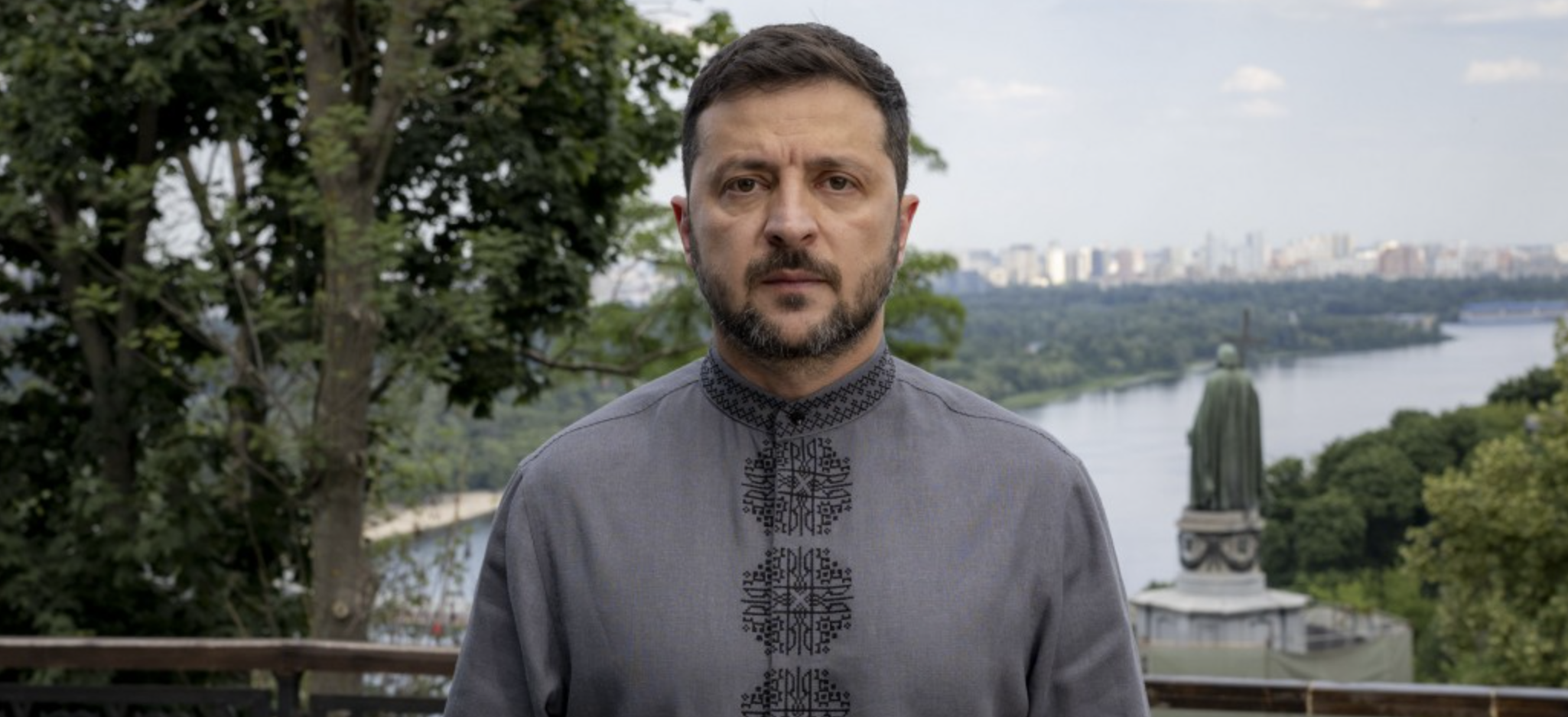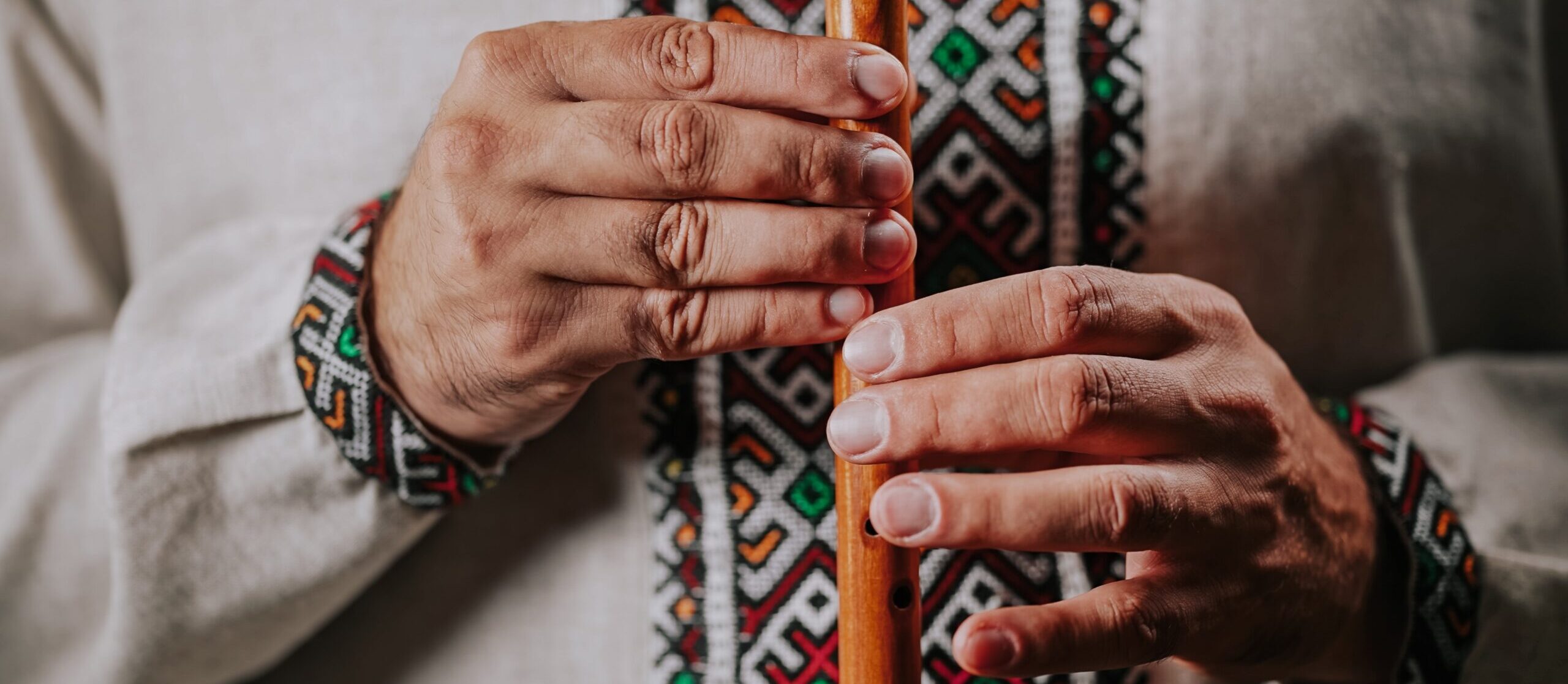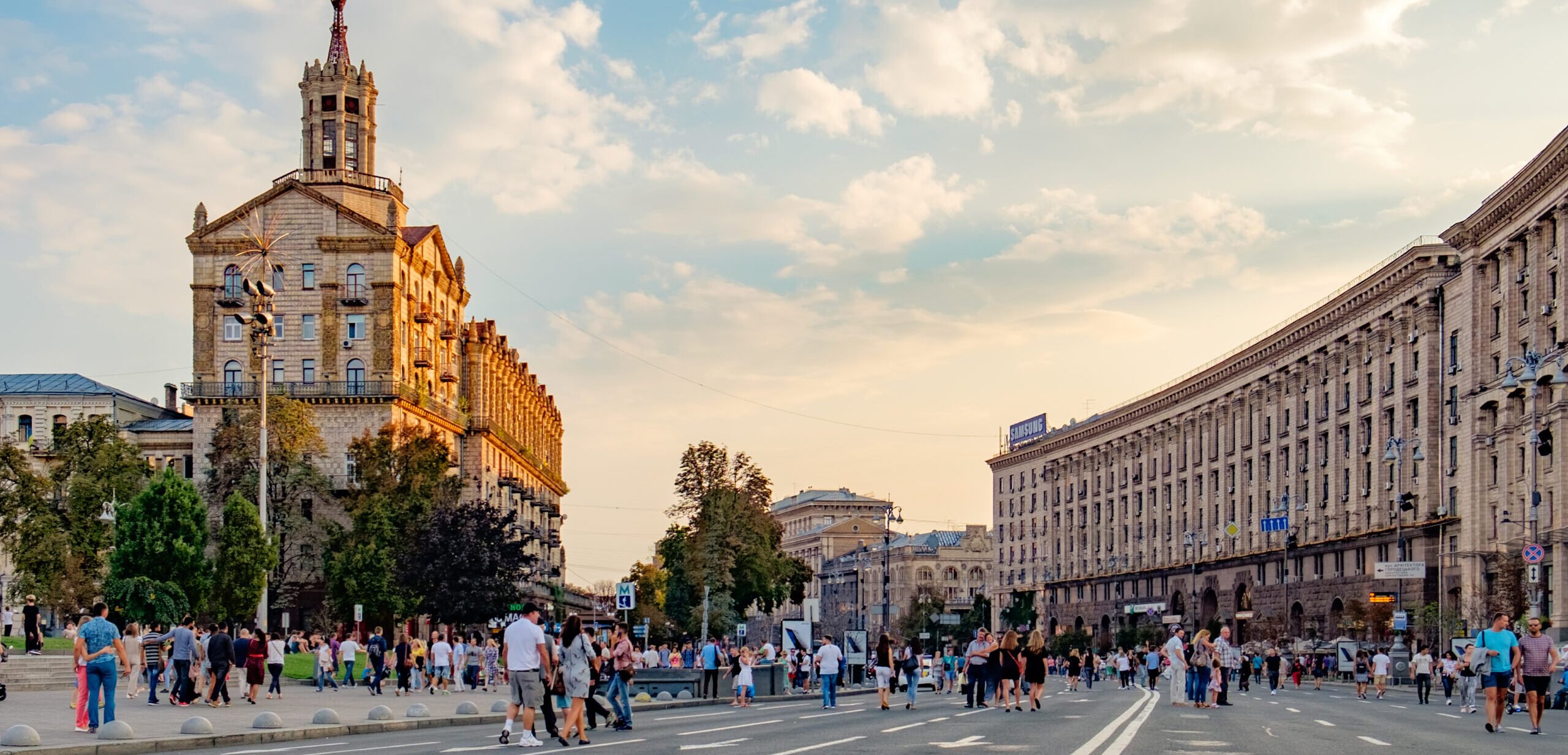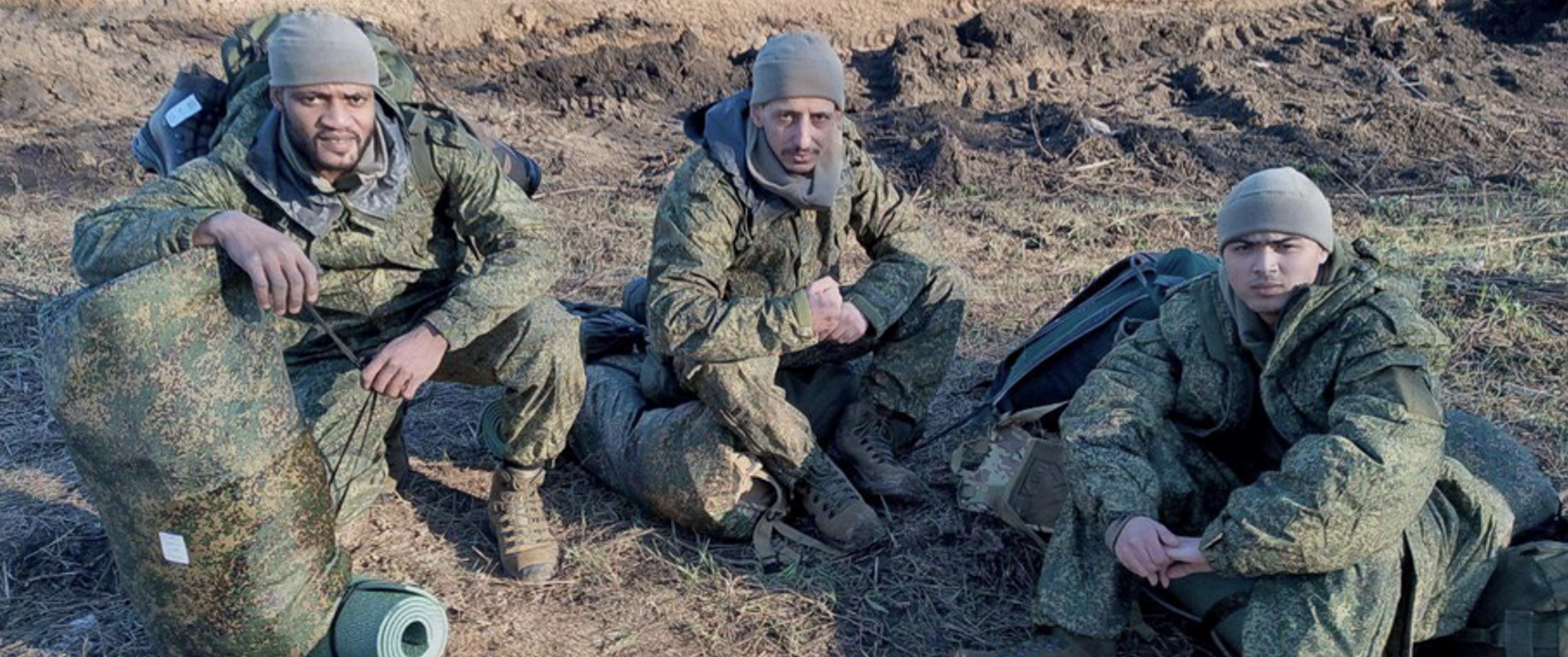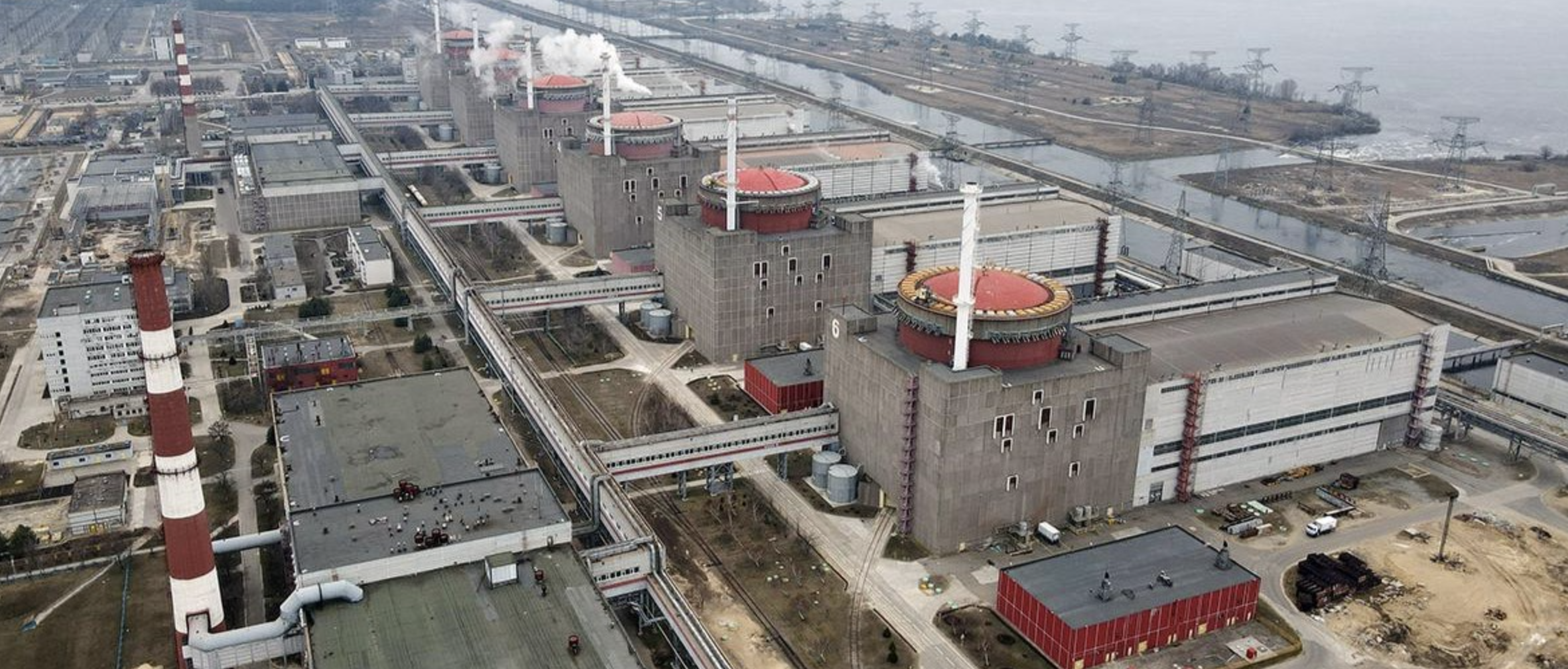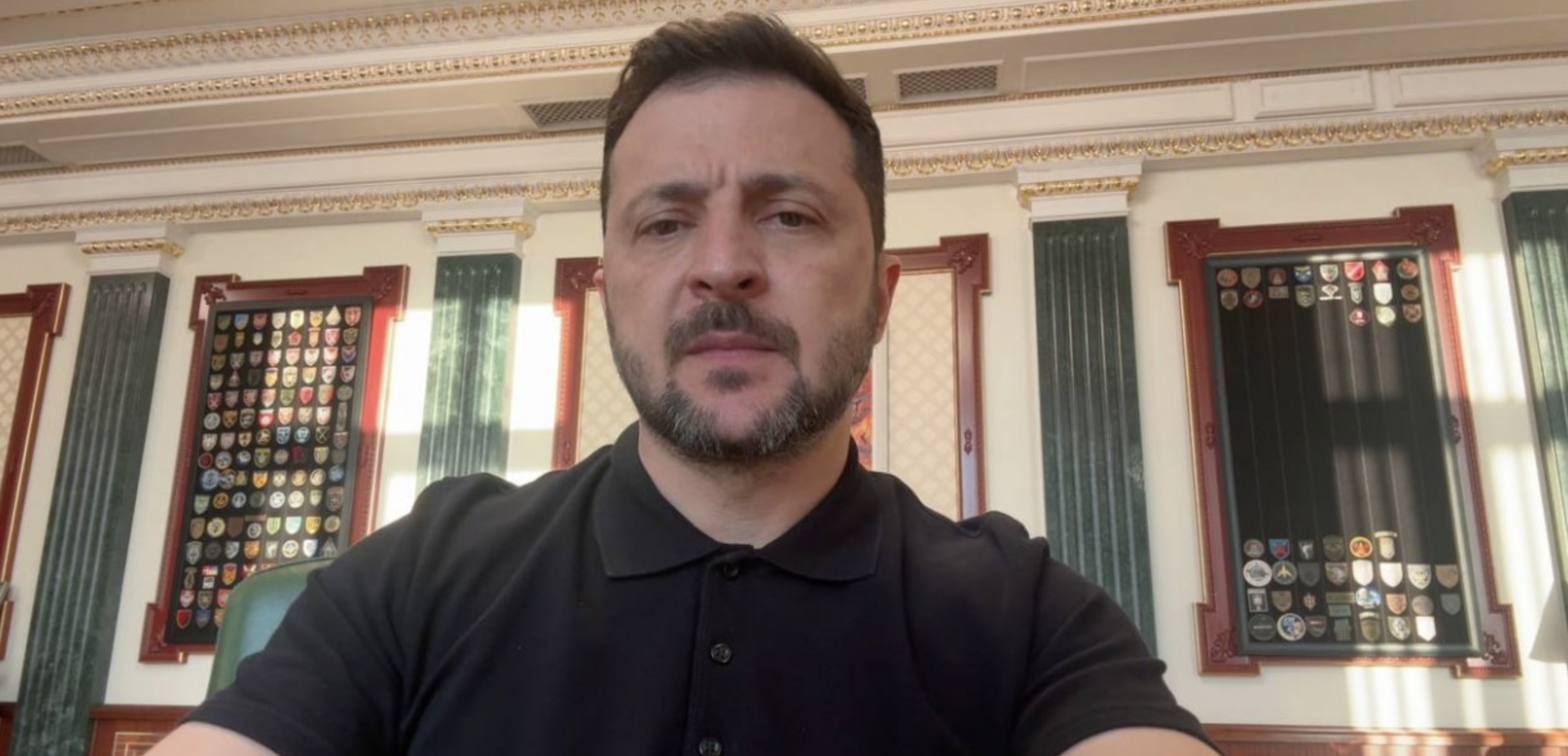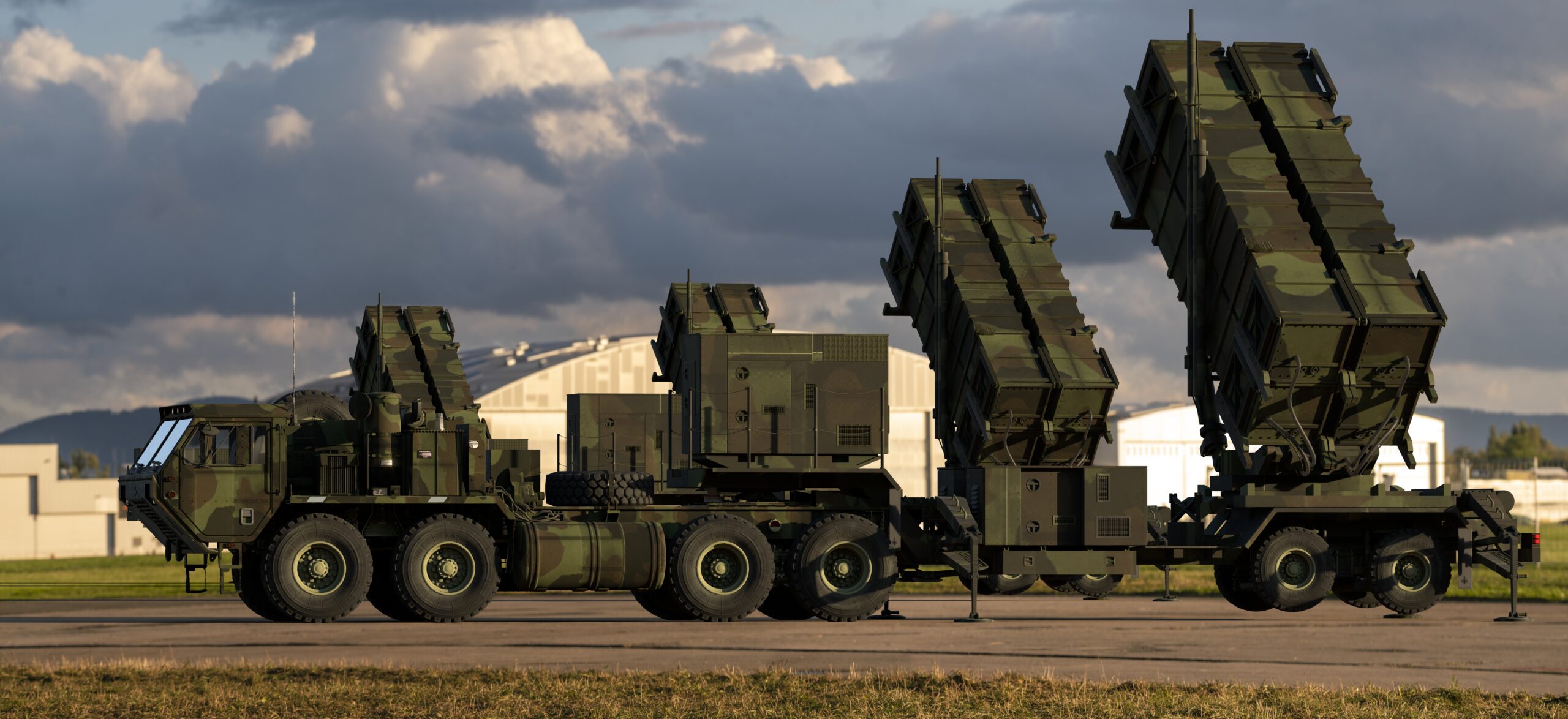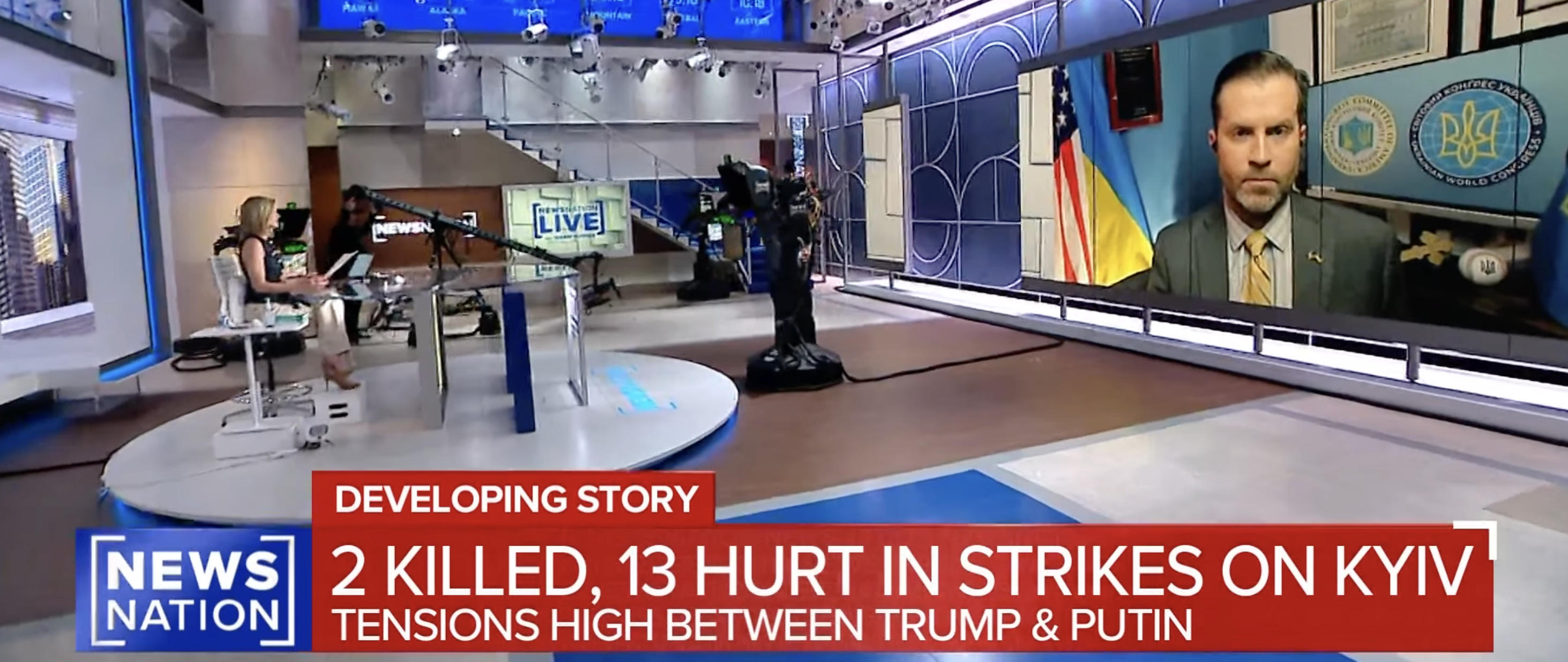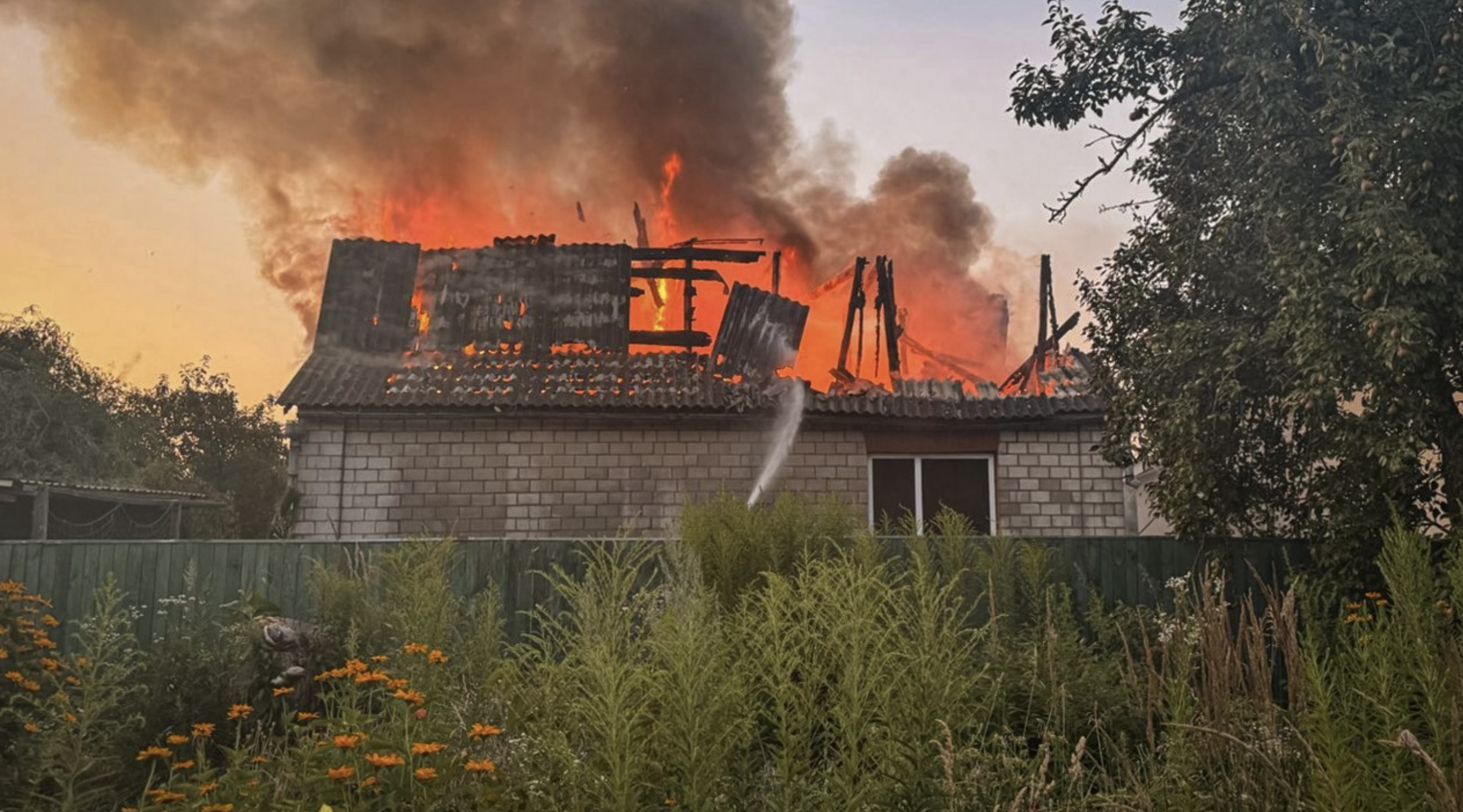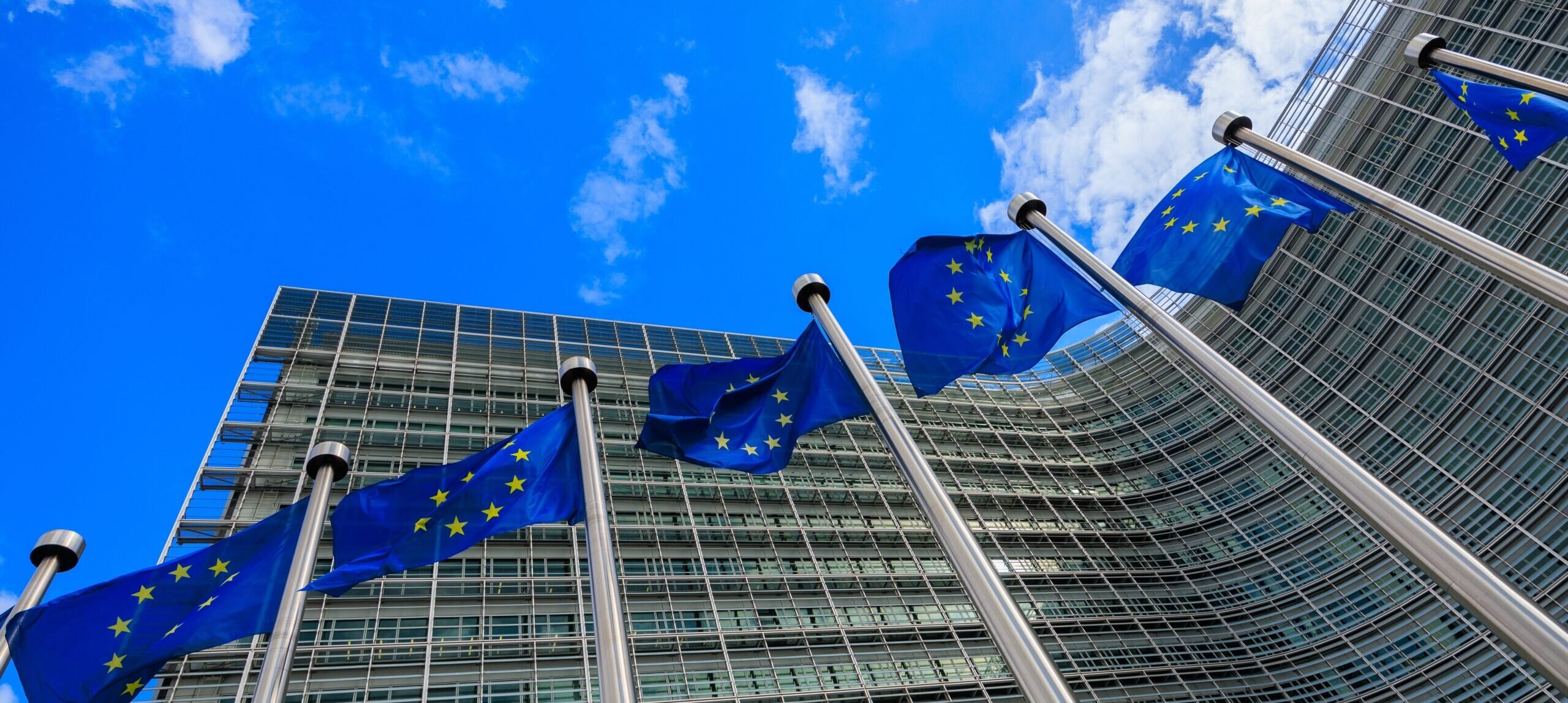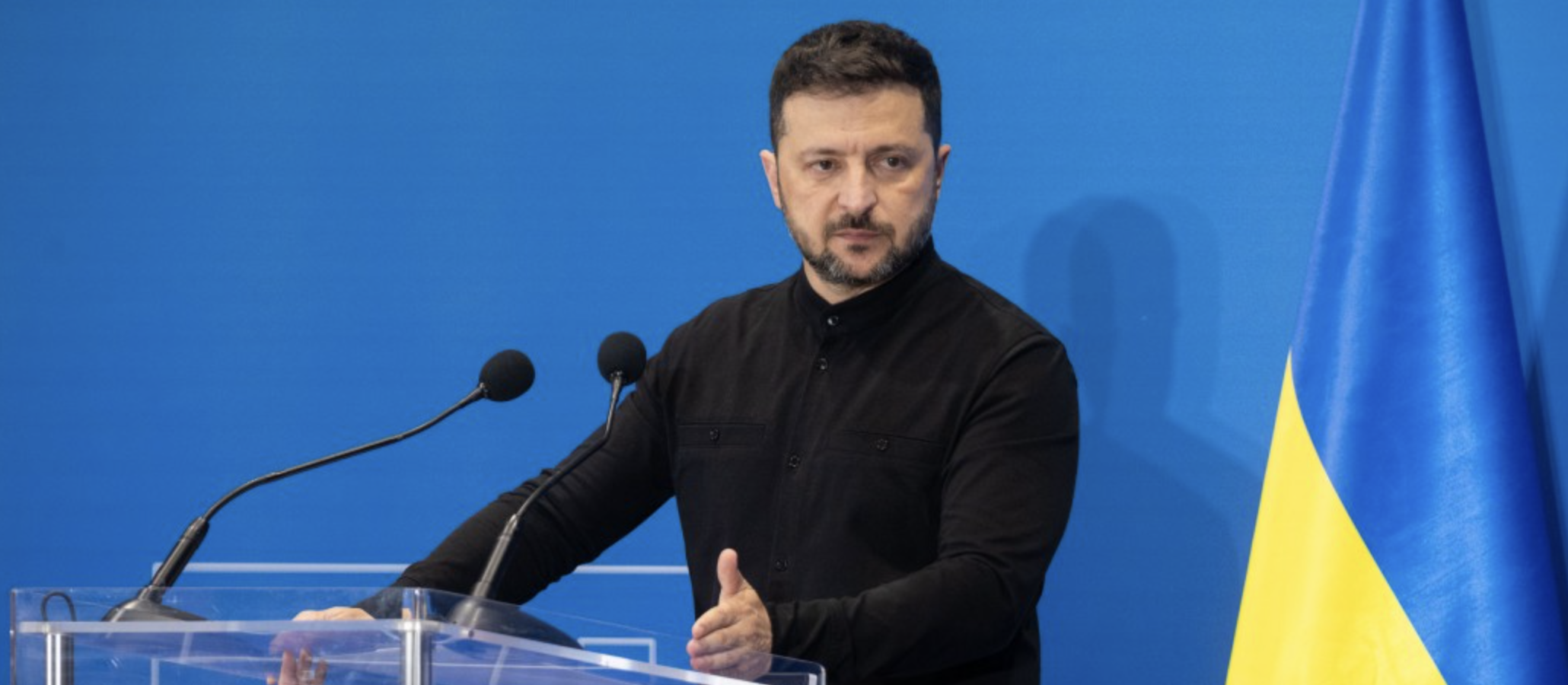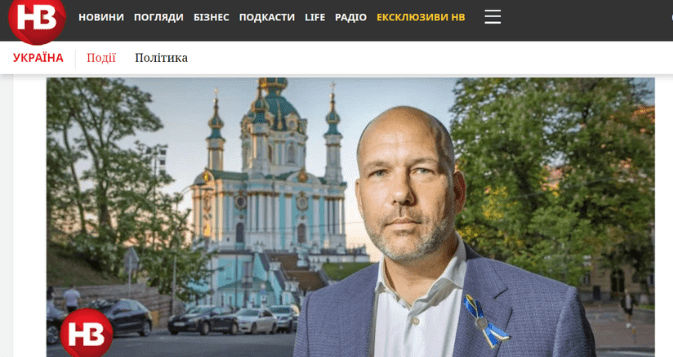
Interview of UWC President Paul Grod with NV.
Author: Natalia Rop
The international Ukrainian community has been advocating for Ukraine’s speedy accession to the EU, protesting against the war, raising money for the army, and helping refugees. It’s been like that around the globe, except in Russia.
Russia’s full-scale war has led to increased activities on another Ukrainian front, namely the global community of 20 million Ukrainians living abroad. They immediately answered the calls to action by receiving refugees, sending protective gear to the Ukrainian military, and organizing mass protests.
One of the driving forces behind these processes is the Ukrainian World Congress (UWC), which unites Ukrainians in more than 60 countries.
In early June, Paul Grod, a Canadian businessman and UWC’s president, arrived in Kyiv for a series of meetings with Ukrainian government and military officials. NV also met with the representative of the Ukrainian diaspora.
— Paul, you are in Kyiv today [June 3] with the UWC delegation. What is the goal of your visit and who did you meet?
— The first goal was to come here and bow our heads in gratitude before the Ukrainian people: the president, government, Ukraine’s defenders, volunteers, all of whom have very skillfully and intelligently defended the country during this unprecedented Russian aggression. The second goal is to show that the world’s Ukrainian community, and indeed the entire world, are standing with Ukraine. Thirdly, we need to understand the basic issues that we need to address to help Ukraine most. Today, after 100 days of war, we need to understand and hear directly from Ukrainians in Ukraine about their most urgent needs so that our diaspora can help most effectively.
We have heard that military aid remains a priority. When we go back to our capital cities, we need to be very specific about what Ukraine needs. Economic assistance is also required as Ukraine has a large deficit and experiencing a financial downturn. It’s important for the countries in which we [Ukrainians abroad] live to hear and understand this. The third issue concerns boycotts and sanctions. We must stifle the Russian economy to prevent the further financing of its war against Ukraine. And fourth, we are working with refugees to provide them with sanctuary and include them in Ukrainian diaspora life.
These are the main priorities of our visit. We’ve met with key high-ranking officials: the foreign minister, defense minister, interior minister, and prosecutor general. We’re still hoping for a meeting with the president and prime minister. We’ve also met with the Territorial Defense to assess the needs of the volunteer sector. We are a non-governmental organization and therefore accustomed to working effectively with volunteers: the diaspora raises funds, purchases the necessary items, and sends them to volunteers in Ukraine to ensure they are delivered into the right hands.
– You are advocating for granting Ukraine EU candidate status. What are the near-term prospects of achieving this status?
– They are near-term. I predict that we’ll have a favorable outcome in June [at the EU summit] because all the arguments are on our side. We just spent three days in Brussels, meeting with the leaders of the European Council, the European Commission, and the European Parliament. It won’t be easy, but looking at who supports us, our case will very likely prevail.
We also advocated for this and a lot of work remains to be done. Our communities in Europe will play a very important role, so we have developed a strategy on how to advocate for Ukraine in each country. Support doesn’t come automatically, because this is a political issue. That is why Ukrainians in European countries are engaging in political actions. They are “street” actions, but are just the beginning. The main consideration is that they are armed with the right argumentation when meeting with decision-makers, whether it be in Portugal, Germany, France, or the Netherlands. They [the citizens of those countries] must do this and we are working as one global team to prepare them for meetings with the government officials to address this issue, so that their government officials are fully aware that public opinion in their countries supports Ukraine. That is the message we must deliver to those politicians.
— There is no consensus concerning the question of granting Ukraine candidate status. How do you persuade those who are against it?
— We have many arguments, but not all of them need to be said out loud. We must look at the arguments from the perspective of the country in which we are presenting them. Each country looks at Ukraine’s EU accession through its own prism. For example, the Netherlands has nothing against Ukraine, but is against EU enlargement. This means we need to provide them with arguments about why it’s important. Others look at the issue from a purely economic point of view.
There are three powerful arguments. First, Europe needs Ukraine as an agricultural mega-power. From the food security point of view, Ukraine is very important for Europe. The same is true for rebuilding. If a country belongs to the EU, then, obviously, contracts with European countries will be favored. And they will be rebuilding a new, technological, innovative, and green country. So, it is important for them to have Ukraine as part of Europe because that will provide them with access to one of Europe’s largest countries.
Second, if they don’t grant candidate status, that will inspire Putin to continue fighting against Ukraine. He will see this as Europe’s weakness, which is a great security risk.
Third, it will come at no cost to Europe. The candidate status does not entail any obligations, but initiates a process that might take five to ten years. And it’s important that Ukraine does the work. I think it can, and at a very quick pace.
So, this is about a political decision: there are neither legal nor financial commitments. We presented those three main arguments when we were in Brussels. And I would say that they were quite powerful and everyone accepted them. But this decision is up to each capital city, so we have to continue working in each one.
— How do Ukrainian communities work in Germany and Hungary where the Kremlin’s fifth column is quite strong?
— The community in Hungary has been there for a very long time. They are so-called autochthones – [aboriginal] Ukrainians who have been living there for many years, and are represented in the Hungarian parliament as a minority. We consulted with community leaders in Hungary just a few days ago, and they said that while the public supports Ukraine, their government does not. So, we should exert as much pressure as possible on the government through the public. On the other hand, Hungary will go to where Germany tells it to. The latter has a huge influence on both Austria and Hungary.
I was very much surprised to hear that Portugal has grown hesitant about supporting Ukraine. When our community leaders there heard that, they rushed back to Portugal to start advocating for this issue.
Germany and France are the key countries that require the most work. In Germany, there are old and new Ukrainian communities. They cooperate with each other, and we work with them to ensure they knock on the right doors. Through our global network, we are helping the younger community in Germany get through to the highest echelons of power. We accomplish this through civil society, our partners, and other ethnic groups, such as the Jewish community. We are also working with think tanks and are employing other levers of influence to persuade the German government.
— Do you feel that you are being heard?
— Yes, we do. In just the last two days, there have been statements by [German] Chancellor Olaf Scholz and Foreign Minister Annalena Baerbock, whose attitude towards Ukraine is becoming more positive by the day. And Ukraine has great allies: President of the European Council Charles Michel, President of the European Commission Ursula von der Leyen, and President of the European Parliament Roberta Metsola. All of them strongly support Ukraine. To a significant extent, the credit for this support should be given to President Volodymyr Zelensky and Prime Minister Denys Shmyhal, both of whom are very skillfully building strong bridges of friendship with these leaders. They have all been to Ukraine and seen the atrocities in Bucha, and they are all lobbying hard for Ukraine.
We are somewhat disappointed with the sixth package of sanctions because it is not what everyone wanted. Still, they are important. When we were in Brussels, many people thought that we wouldn’t even have these. But they passed, and although it is not 100% of what we wanted, we got 70-75%. We need to stay positive, because it is easy to get frustrated and give up when you are told that there is no other way. But we must accept everything with a battle-ready spirit: the truth always prevails.
— Is the Ukrainian community in Russia somehow involved in all this?
— They are in hiding. I know the Ukrainian community in Russia very well. We had two UWC vice-presidents from Russia, and they were simply persecuted. They faced criminal charges because UWC was recognized as an undesirable organization. I myself have been persona non grata in Russia since 2014. Over the past two years, all Ukrainian organizations there have been liquidated, and Ukrainian life no longer exists in Russia. Putin is very afraid of Ukrainians, and the Ukrainians [there] are afraid of Putin. So now, they are just trying to survive and not become completely crushed. The genocide that is taking place against Ukrainians in our country can also happen in Russia. In fact, it has already happened: the cultural genocide against Ukrainians in Russia has been going on for a long time and has now gained intensity. We should try to give them political backing, but this is very difficult in present-day Russia. We had tried to support and empower them up until last year, but now, in the current conditions, this is next to impossible.
— How and where did you learn about the beginning of the full-scale war? What was your reaction?
— It was a great shock. I remember when we first heard about it very well. One of the UWC staff was retiring, and we got together for a farewell party. It was a great shock for us when we heard about it. We went back and started planning what [to do] next. Prior to that, we had thought and understood that something would happen, because we had listened to the intelligence of the United States and Great Britain. But we never thought that it would be so large-scale in nature, or that tanks would go straight for Kyiv, that there would be shelling of the capital, and even Yavoriv. I was in Przemysl at the border when rockets hit Yavoriv, just 20 km from the border. I was there with four US senators. We couldn’t believe that something like that was possible. This shows that Putin is preparing to [attack] not only Ukraine but Europe as well.
From our meeting at the Defense Ministry, I recall the assessment that Russia is preparing а springboard in Ukraine for the further invasion of Europe. They do not destroy infrastructure, railways, and roads, but are destroying human lives by trying to exterminate all Ukrainians or expel them from their country. And Europe does not appreciate this. Belgians, the French, or Germans think that [a further attack on Europe] is impossible and unrealistic, but this is what our neighbors understand very well: the Poles, Slovaks, Romanians, Moldovans, and the Baltic Countries. Our most difficult task is to make Central and Western European Countries understand Putin’s plan.
— All these years, Ukrainian communities abroad have rallied around the challenges facing Ukraine and helped. How much did the full-scale Russian invasion intensify these activities?
— Very much so. And this shows how our institutions – those for youth and students, political and professional organizations, some of which have been active for 130 years – were able to respond immediately. There are individual activists, and they are very important and powerful, but when there are established communities already in place, they can turn to their governments in an organized fashion to demand more from them, because they have relationships with and are active within their political parties. This is very effective. Our communities responded immediately, they worked through the media and with political parties in their countries to secure as much support as possible. And we see that the entire democratic world stands with Ukraine. And this, to a great extent, is thanks to our diaspora.
I should also add that, within a short period of time, the diaspora raised almost half a billion dollars and provided humanitarian aid to Ukraine. When our communities raise funds, they do not keep the money but immediately buy what is needed and deliver it. There are many such examples. The Ukrainian Canadian Congress has raised over $40 million. And that is just one organization in one country. It unites many other organizations, each of which has additionally raised funds.
The Ukrainian World Congress raised $23 million for bullet-proof vests and other protective gear [for Ukraine’s defenders], all of which have been delivered. Just today we delivered 2,000 bullet-proof vests, helmets, and IFAKs for defenders.
In other words, it’s happening on a large scale, proactively, and efficiently.
Refugees comprise the third area of engagement for our communities. We all know about the big international organizations, but our communities are the ones doing the most. For example, I visited Ukrainian House in Warsaw. They had a database of 10,000 refugees seeking housing and 10,000 people willing to accommodate them in just a few days into the war. Our communities also help a lot financially, and set up stores for refugees to come and take that they need for free. They are asking their governments to provide refugees with security, medical care, accommodation, equipment, housing, and education. The scale is quite large.
— Were the vests you mentioned procured through the UWC #UniteWithUkraine initiative?
— Yes. And this is just the beginning. We hope to attract even more funding. There are large fundraising events in Los Angeles today, and we are planning campaigns around the world. We met with several donors in Brussels and Davos. This is an ongoing process.
So far, we have raised $23 million and remain focused on providing protective equipment to our defenders. I met with many refugees on the Polish border and asked how we could best help them. They asked to help protect their sons, husbands, brothers, and parents who remained in Ukraine. Because they are going to the frontlines with nothing to protect themselves. We heard this and responded with a flurry of activity. We have established a logistics center in Poland through which we buy what is necessary and immediately ship it. We do not deliver it through the hands of others, but directly to Territorial Defense units that need it most.
— What has the Ukrainian diaspora had to do now, that it has never done before?
— We must reorient many of our structures to be more flexible. Because in this new reality, there are a lot of new Ukrainians who need to become involved in our communities as soon as possible: schools, youth organizations, etc. The UWC unites organizations from 65 countries, and when I travel the world to our communities, I feel at home in each of them. And it’s important that our newcomers feel the same way, that when they come to a foreign country where there are Ukrainians, they know that they will find a small Ukraine there. They have to unite, nurture their Ukrainian identity, and ensure that their children are brought up in the Ukrainian spirit. The best way to do so is through schools and youth and student organizations. It’s very challenging for us to prepare NGOs to accept as many refugees as possible, very complex. We have summer camps but their capacity is several hundred children, not several thousand. We must learn to work in these new realities. But I’m convinced that our diaspora is quite innovative and will overcome this challenge.
The international Ukrainian community has been advocating for Ukraine’s speedy accession to the EU, protesting against the war, raising money for the army, and helping refugees. It’s been like that around the globe, except in Russia.
Russia’s full-scale war has led to increased activities on another Ukrainian front, namely the global community of 20 million Ukrainians living abroad. They immediately answered the calls to action by receiving refugees, sending protective gear to the Ukrainian military, and organizing mass protests.
One of the driving forces behind these processes is the Ukrainian World Congress (UWC), which unites Ukrainians in more than 60 countries.
In early June, Paul Grod, a Canadian businessman and UWC’s president, arrived in Kyiv for a series of meetings with Ukrainian government and military officials. NV also met with the representative of the Ukrainian diaspora.
— Paul, you are in Kyiv today [June 3] with the UWC delegation. What is the goal of your visit and who did you meet?
— The first goal was to come here and bow our heads in gratitude before the Ukrainian people: the president, government, Ukraine’s defenders, volunteers, all of whom have very skillfully and intelligently defended the country during this unprecedented Russian aggression. The second goal is to show that the world’s Ukrainian community, and indeed the entire world, are standing with Ukraine. Thirdly, we need to understand the basic issues that we need to address to help Ukraine most. Today, after 100 days of war, we need to understand and hear directly from Ukrainians in Ukraine about their most urgent needs so that our diaspora can help most effectively.
We have heard that military aid remains a priority. When we go back to our capital cities, we need to be very specific about what Ukraine needs. Economic assistance is also required as Ukraine has a large deficit and experiencing a financial downturn. It’s important for the countries in which we [Ukrainians abroad] live to hear and understand this. The third issue concerns boycotts and sanctions. We must stifle the Russian economy to prevent the further financing of its war against Ukraine. And fourth, we are working with refugees to provide them with sanctuary and include them in Ukrainian diaspora life.
These are the main priorities of our visit. We’ve met with key high-ranking officials: the foreign minister, defense minister, interior minister, and prosecutor general. We’re still hoping for a meeting with the president and prime minister. We’ve also met with the Territorial Defense to assess the needs of the volunteer sector. We are a non-governmental organization and therefore accustomed to working effectively with volunteers: the diaspora raises funds, purchases the necessary items, and sends them to volunteers in Ukraine to ensure they are delivered into the right hands.
– You are advocating for granting Ukraine EU candidate status. What are the near-term prospects of achieving this status?
– They are near-term. I predict that we’ll have a favorable outcome in June [at the EU summit] because all the arguments are on our side. We just spent three days in Brussels, meeting with the leaders of the European Council, the European Commission, and the European Parliament. It won’t be easy, but looking at who supports us, our case will very likely prevail.
We also advocated for this and a lot of work remains to be done. Our communities in Europe will play a very important role, so we have developed a strategy on how to advocate for Ukraine in each country. Support doesn’t come automatically, because this is a political issue. That is why Ukrainians in European countries are engaging in political actions. They are “street” actions, but are just the beginning. The main consideration is that they are armed with the right argumentation when meeting with decision-makers, whether it be in Portugal, Germany, France, or the Netherlands. They [the citizens of those countries] must do this and we are working as one global team to prepare them for meetings with the government officials to address this issue, so that their government officials are fully aware that public opinion in their countries supports Ukraine. That is the message we must deliver to those politicians.
— There is no consensus concerning the question of granting Ukraine candidate status. How do you persuade those who are against it?
— We have many arguments, but not all of them need to be said out loud. We must look at the arguments from the perspective of the country in which we are presenting them. Each country looks at Ukraine’s EU accession through its own prism. For example, the Netherlands has nothing against Ukraine, but is against EU enlargement. This means we need to provide them with arguments about why it’s important. Others look at the issue from a purely economic point of view.
There are three powerful arguments. First, Europe needs Ukraine as an agricultural mega-power. From the food security point of view, Ukraine is very important for Europe. The same is true for rebuilding. If a country belongs to the EU, then, obviously, contracts with European countries will be favored. And they will be rebuilding a new, technological, innovative, and green country. So, it is important for them to have Ukraine as part of Europe because that will provide them with access to one of Europe’s largest countries.
Second, if they don’t grant candidate status, that will inspire Putin to continue fighting against Ukraine. He will see this as Europe’s weakness, which is a great security risk.
Third, it will come at no cost to Europe. The candidate status does not entail any obligations, but initiates a process that might take five to ten years. And it’s important that Ukraine does the work. I think it can, and at a very quick pace.
So, this is about a political decision: there are neither legal nor financial commitments. We presented those three main arguments when we were in Brussels. And I would say that they were quite powerful and everyone accepted them. But this decision is up to each capital city, so we have to continue working in each one.
— How do Ukrainian communities work in Germany and Hungary where the Kremlin’s fifth column is quite strong?
— The community in Hungary has been there for a very long time. They are so-called autochthones – [aboriginal] Ukrainians who have been living there for many years, and are represented in the Hungarian parliament as a minority. We consulted with community leaders in Hungary just a few days ago, and they said that while the public supports Ukraine, their government does not. So, we should exert as much pressure as possible on the government through the public. On the other hand, Hungary will go to where Germany tells it to. The latter has a huge influence on both Austria and Hungary.
I was very much surprised to hear that Portugal has grown hesitant about supporting Ukraine. When our community leaders there heard that, they rushed back to Portugal to start advocating for this issue.
Germany and France are the key countries that require the most work. In Germany, there are old and new Ukrainian communities. They cooperate with each other, and we work with them to ensure they knock on the right doors. Through our global network, we are helping the younger community in Germany get through to the highest echelons of power. We accomplish this through civil society, our partners, and other ethnic groups, such as the Jewish community. We are also working with think tanks and are employing other levers of influence to persuade the German government.
— Do you feel that you are being heard?
— Yes, we do. In just the last two days, there have been statements by [German] Chancellor Olaf Scholz and Foreign Minister Annalena Baerbock, whose attitude towards Ukraine is becoming more positive by the day. And Ukraine has great allies: President of the European Council Charles Michel, President of the European Commission Ursula von der Leyen, and President of the European Parliament Roberta Metsola. All of them strongly support Ukraine. To a significant extent, the credit for this support should be given to President Volodymyr Zelensky and Prime Minister Denys Shmyhal, both of whom are very skillfully building strong bridges of friendship with these leaders. They have all been to Ukraine and seen the atrocities in Bucha, and they are all lobbying hard for Ukraine.
We are somewhat disappointed with the sixth package of sanctions because it is not what everyone wanted. Still, they are important. When we were in Brussels, many people thought that we wouldn’t even have these. But they passed, and although it is not 100% of what we wanted, we got 70-75%. We need to stay positive, because it is easy to get frustrated and give up when you are told that there is no other way. But we must accept everything with a battle-ready spirit: the truth always prevails.
— Is the Ukrainian community in Russia somehow involved in all this?
— They are in hiding. I know the Ukrainian community in Russia very well. We had two UWC vice-presidents from Russia, and they were simply persecuted. They faced criminal charges because UWC was recognized as an undesirable organization. I myself have been persona non grata in Russia since 2014. Over the past two years, all Ukrainian organizations there have been liquidated, and Ukrainian life no longer exists in Russia. Putin is very afraid of Ukrainians, and the Ukrainians [there] are afraid of Putin. So now, they are just trying to survive and not become completely crushed. The genocide that is taking place against Ukrainians in our country can also happen in Russia. In fact, it has already happened: the cultural genocide against Ukrainians in Russia has been going on for a long time and has now gained intensity. We should try to give them political backing, but this is very difficult in present-day Russia. We had tried to support and empower them up until last year, but now, in the current conditions, this is next to impossible.
— How and where did you learn about the beginning of the full-scale war? What was your reaction?
— It was a great shock. I remember when we first heard about it very well. One of the UWC staff was retiring, and we got together for a farewell party. It was a great shock for us when we heard about it. We went back and started planning what [to do] next. Prior to that, we had thought and understood that something would happen, because we had listened to the intelligence of the United States and Great Britain. But we never thought that it would be so large-scale in nature, or that tanks would go straight for Kyiv, that there would be shelling of the capital, and even Yavoriv. I was in Przemysl at the border when rockets hit Yavoriv, just 20 km from the border. I was there with four US senators. We couldn’t believe that something like that was possible. This shows that Putin is preparing to [attack] not only Ukraine but Europe as well.
From our meeting at the Defense Ministry, I recall the assessment that Russia is preparing а springboard in Ukraine for the further invasion of Europe. They do not destroy infrastructure, railways, and roads, but are destroying human lives by trying to exterminate all Ukrainians or expel them from their country. And Europe does not appreciate this. Belgians, the French, or Germans think that [a further attack on Europe] is impossible and unrealistic, but this is what our neighbors understand very well: the Poles, Slovaks, Romanians, Moldovans, and the Baltic Countries. Our most difficult task is to make Central and Western European Countries understand Putin’s plan.
— All these years, Ukrainian communities abroad have rallied around the challenges facing Ukraine and helped. How much did the full-scale Russian invasion intensify these activities?
— Very much so. And this shows how our institutions – those for youth and students, political and professional organizations, some of which have been active for 130 years – were able to respond immediately. There are individual activists, and they are very important and powerful, but when there are established communities already in place, they can turn to their governments in an organized fashion to demand more from them, because they have relationships with and are active within their political parties. This is very effective. Our communities responded immediately, they worked through the media and with political parties in their countries to secure as much support as possible. And we see that the entire democratic world stands with Ukraine. And this, to a great extent, is thanks to our diaspora.
I should also add that, within a short period of time, the diaspora raised almost half a billion dollars and provided humanitarian aid to Ukraine. When our communities raise funds, they do not keep the money but immediately buy what is needed and deliver it. There are many such examples. The Ukrainian Canadian Congress has raised over $40 million. And that is just one organization in one country. It unites many other organizations, each of which has additionally raised funds.
The Ukrainian World Congress raised $23 million for bullet-proof vests and other protective gear [for Ukraine’s defenders], all of which have been delivered. Just today we delivered 2,000 bullet-proof vests, helmets, and IFAKs for defenders.
In other words, it’s happening on a large scale, proactively, and efficiently.
Refugees comprise the third area of engagement for our communities. We all know about the big international organizations, but our communities are the ones doing the most. For example, I visited Ukrainian House in Warsaw. They had a database of 10,000 refugees seeking housing and 10,000 people willing to accommodate them in just a few days into the war. Our communities also help a lot financially, and set up stores for refugees to come and take that they need for free. They are asking their governments to provide refugees with security, medical care, accommodation, equipment, housing, and education. The scale is quite large.
— Were the vests you mentioned procured through the UWC #UniteWithUkraine initiative?
— Yes. And this is just the beginning. We hope to attract even more funding. There are large fundraising events in Los Angeles today, and we are planning campaigns around the world. We met with several donors in Brussels and Davos. This is an ongoing process.
So far, we have raised $23 million and remain focused on providing protective equipment to our defenders. I met with many refugees on the Polish border and asked how we could best help them. They asked to help protect their sons, husbands, brothers, and parents who remained in Ukraine. Because they are going to the frontlines with nothing to protect themselves. We heard this and responded with a flurry of activity. We have established a logistics center in Poland through which we buy what is necessary and immediately ship it. We do not deliver it through the hands of others, but directly to Territorial Defense units that need it most.
— What has the Ukrainian diaspora had to do now, that it has never done before?
— We must reorient many of our structures to be more flexible. Because in this new reality, there are a lot of new Ukrainians who need to become involved in our communities as soon as possible: schools, youth organizations, etc. The UWC unites organizations from 65 countries, and when I travel the world to our communities, I feel at home in each of them. And it’s important that our newcomers feel the same way, that when they come to a foreign country where there are Ukrainians, they know that they will find a small Ukraine there. They have to unite, nurture their Ukrainian identity, and ensure that their children are brought up in the Ukrainian spirit. The best way to do so is through schools and youth and student organizations. It’s very challenging for us to prepare NGOs to accept as many refugees as possible, very complex. We have summer camps but their capacity is several hundred children, not several thousand. We must learn to work in these new realities. But I’m convinced that our diaspora is quite innovative and will overcome this challenge.
